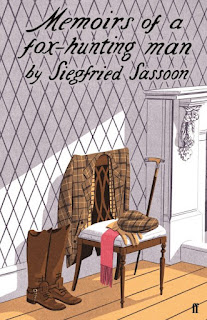Politics as a 'Living'
 |
| Wide Spot by Thomas McGuane. © The New Yorker, 2019. |
In Thomas McGuane’s recent
short-story ‘Wide Spot’, a Montana politician travels around small-town America
to secure ballot votes. In Prairiedale (formerly Wide Spot), he meets an old
friend. They talk and discuss their days in a rock band, disbanding in Wide
Spot sometime in the 1980s.
The friend and former singer, Micah Clardy, has remained in the town ever since – he is known as Old Mr. Fixit by the town’s working-class locals. During their time in Micah’s basement apartment, the politician (who is the story’s narrator) spots a photograph of Micah’s daughter and decides to pursue her. Later, outside Wide Spot, Micah calls his cellphone. He’s angry. ‘You delusional cocksucker’, he says, ‘[y]ou’re a perfect politician’.
Our narrator, at one-point kind and benevolent, shifts his attitude. Suddenly, the mask of courtesy falls. ‘I can say with all honesty’, he confesses, ‘that I’m not a depressed person. Unlike Old Mr. Fixit, I have a future and I don’t intend to fade’. His performance as the everyman politician slips; underneath, he’s ruthless and self-centred.
The friend and former singer, Micah Clardy, has remained in the town ever since – he is known as Old Mr. Fixit by the town’s working-class locals. During their time in Micah’s basement apartment, the politician (who is the story’s narrator) spots a photograph of Micah’s daughter and decides to pursue her. Later, outside Wide Spot, Micah calls his cellphone. He’s angry. ‘You delusional cocksucker’, he says, ‘[y]ou’re a perfect politician’.
Our narrator, at one-point kind and benevolent, shifts his attitude. Suddenly, the mask of courtesy falls. ‘I can say with all honesty’, he confesses, ‘that I’m not a depressed person. Unlike Old Mr. Fixit, I have a future and I don’t intend to fade’. His performance as the everyman politician slips; underneath, he’s ruthless and self-centred.
‘Wide Spot’ presents a picture of a
politician who cares very little for the people he encounters. He arrives in
Prairiedale with a single intention: ‘to make sure my constituents would keep
showing up to vote’. From his perspective, people are numbers – not humans, but
things which serve a utilitarian need. For instance, the politician seeks the ‘county
chair’ of his party, one Cornel Brown. However, he makes a mistake. Brown is
neither the county chair nor a supporter of his campaign.
Awkwardly, the politician devises a quick strategy. In Brown’s office, he talks about his time in Wide Spot, supposing that Cornel would ‘change his tune once he understood that I had local memories’. But Brown remains unconvinced. Then, ‘I didn’t need him anymore and left without a word’. If the vote was never there, his ‘politician’s knack for filling the air with pleasant nattering’ becomes useless. Therefore, in his world, so is the person: useless.
Awkwardly, the politician devises a quick strategy. In Brown’s office, he talks about his time in Wide Spot, supposing that Cornel would ‘change his tune once he understood that I had local memories’. But Brown remains unconvinced. Then, ‘I didn’t need him anymore and left without a word’. If the vote was never there, his ‘politician’s knack for filling the air with pleasant nattering’ becomes useless. Therefore, in his world, so is the person: useless.
The narrator reveals his attitude
through the sort of language he employs. After realising that he is at odds
with Prairiedale’s inhabitants, he thinks about leaving for a more ‘reliable
stop’. When he reminisces about life with a former band-mate, Micah, he slides
into his rehearsed spiel.
“As
we meet the challenges ahead, I’d like to show our fellow-Montanans a better
way to a sustainable future”. I held my hand before me as though showing the
way to the future.
Except his lingo is meaningless in
this context, for Micah has never registered to vote. Instead, his charade
falls to pieces when Micah bursts into laughter, making him feel ‘exposed’. The
politician’s language is emotionless, unconvincing and (tragically) hilarious.
Overall, our narrator is hard-hearted
and, really, a manipulative sort of individual. Thomas McGuane has constructed
a convincing portraiture of a politician who refuses to view his role as a
public duty; instead, he views politics as a career move which yields big
rewards. The larger the vote count, the greater the venture.
Yet, clearly, he’s failing, and ‘Wide Spot’ shows him in his lowest moment. With a sting, he admits that ‘it’s a living’. He continues: ‘I should have quit while I was ahead, but public respect trumps self-respect in my book’. In other words, his life is meaningless without quantitative rewards. But his attitude is wrong, leading to his demise as a man who keeps reassuring himself that he’s not depressed until he finally receives his comeuppance.
Yet, clearly, he’s failing, and ‘Wide Spot’ shows him in his lowest moment. With a sting, he admits that ‘it’s a living’. He continues: ‘I should have quit while I was ahead, but public respect trumps self-respect in my book’. In other words, his life is meaningless without quantitative rewards. But his attitude is wrong, leading to his demise as a man who keeps reassuring himself that he’s not depressed until he finally receives his comeuppance.
Source:
Thomas
McGuane, ‘Wide Spot’ in The New Yorker (23
September 2019), pp 50-53.


Comments
Post a Comment